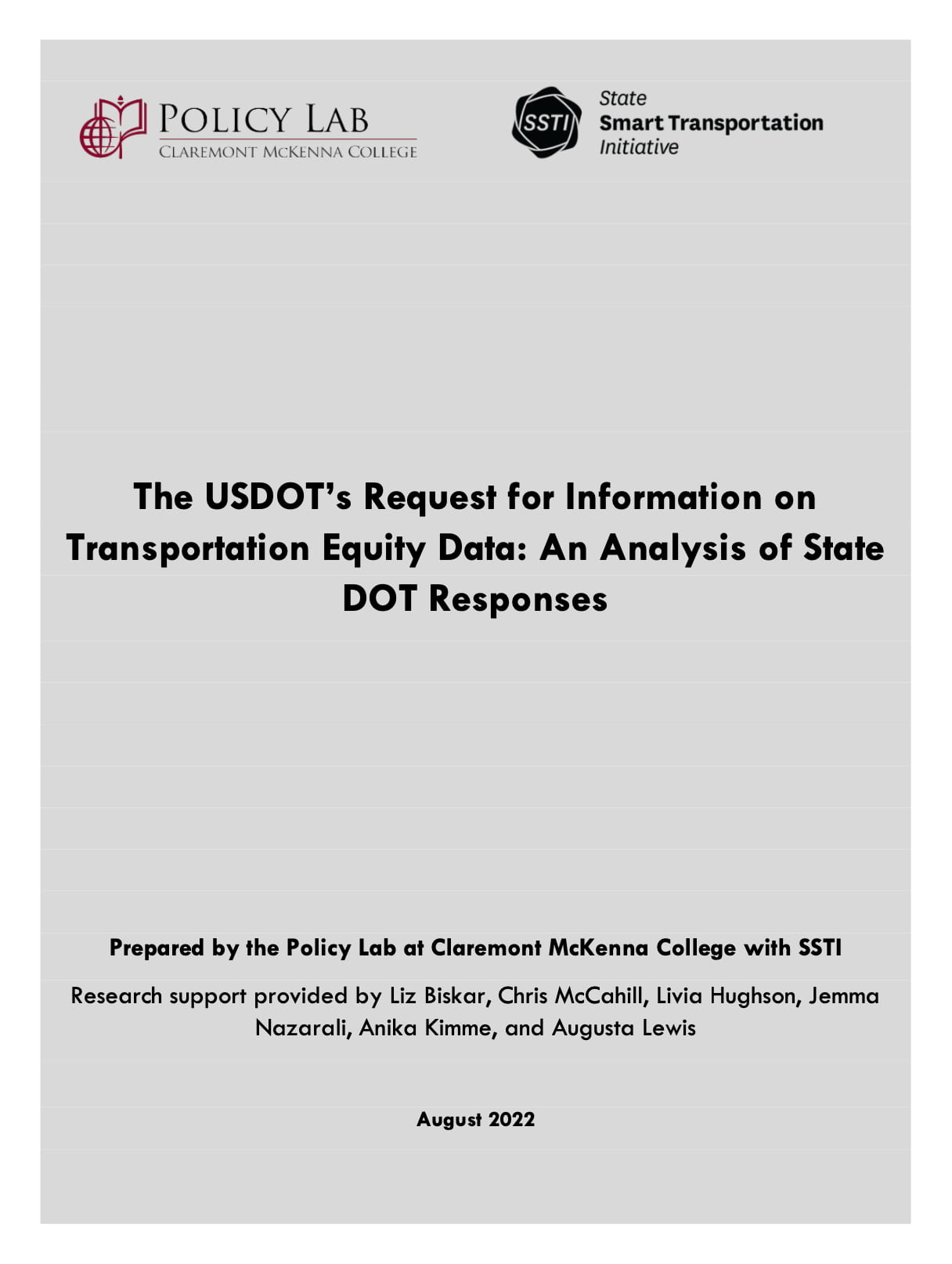

BACKGROUND
In May 2021, the US Department of Transportation (USDOT) issued a Request for Information (RFI) to gather input on available data sources, methods, and assessment tools being used to measure transportation equity. The RFI was announced as an action step under President Biden’s Executive Order 13985, “Advancing Racial Equity and Support for Underserved Communities Through the Federal Government,” which seeks to adopt a comprehensive approach to advance equity for all, including people of color, underserved communities, those impacted by persistent poverty, and other marginalized groups.
The RFI contained 25 questions divided into three sections: 1) methods and assessment tools to measure equity, 2) equity data considerations, and 3) transportation workforce data. The overall purpose of the RFI was to assist the USDOT to develop national-level transportation policies and programs that distribute resources equitably to underserved communities and to gain insight into the ways in which previous federal transportation policies and programs have harmed communities of color and marginalized groups. The USDOT solicited input from public transportation agencies, non-profits, academic institutions, advocates, and other individuals working in the transportation sector. Over 300 public comments were submitted, including 11 from state DOTs.
In November 2021, the USDOT released a summary of the 300+ public comments submitted in response to its RFI on equity. The Summary of Public Comments aggregates responses and highlights common themes under each of the 25 questions contained in the RFI. Our research sought to build on the USDOT’s Summary of Public Comments by focusing on summarizing and analyzing responses submitted by state DOTs only.
SUMMARY
Our report outlines current needs, perspectives, and best practices related to transportation equity based on an analysis of state DOT responses to the US Department of Transportation’s (USDOT) Request for Information (RFI) on Transportation Equity Data. It first provides background information based on current related literature, then offers a three-pronged analysis of responses from state DOTs: 1) a rough maturity index, 2) identifying common themes, and 3) identifying best practices.
A total of 314 public comments were submitted to the RFI on Transportation Equity Data, including 11 comments from state DOTs. The state DOTs that responded are: California (Caltrans), Connecticut (CTDOT), District of Columbia (DDOT), Kansas (KDOT), Louisiana (LDOTD), Massachusetts (MassDOT), Minnesota (MnDOT), Oregon (ODOT), Pennsylvania (PennDOT), Utah (UDOT), and Washington (WSDOT).
Overall, state DOTs reported using many of the same baseline population variables including race, ethnicity, income, and limited English proficiency (LEP) in equity analyses. Several state DOTs provided more expansive definitions of equity to include indicators related to public health; accessibility to jobs, education, and housing; and environmental exposures, among others. The importance of community engagement was also mentioned by nearly all state DOTs as an important equity principle that should be embedded across project development and evaluation. Many state DOTs reported being in the process of piloting or developing tools to improve equity assessments.
The full report is available for download here and on the SSTI website.
Project Partner: Chris McCahill, Managing Director, State Smart Transportation Initiative (SSTI)
Faculty/Staff: Liz Biskar, Assistant Director, CMC Policy Lab
Research Assistants: Anika Kimme, Augusta Lewis, Jemma Nazarali, Livia Hughson

